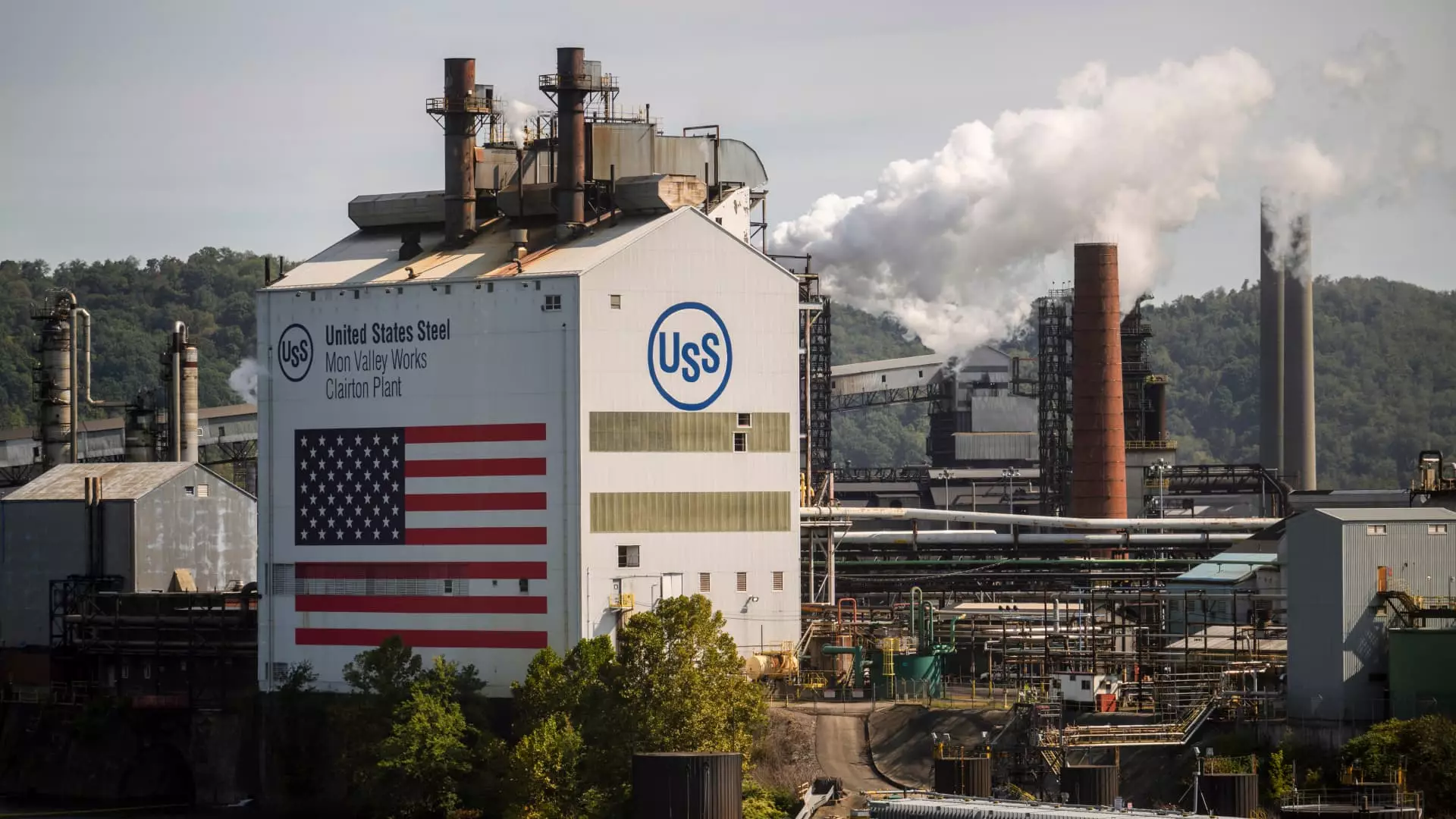The Trump administration’s recent attempts to prolong the lawsuit initiated by U.S. Steel and Nippon Steel against a U.S. national security panel must raise eyebrows among those who cherish the balance of economic interests and national security. The motion filed to extend critical deadlines has not merely legal implications but invites scrutiny regarding the larger effects of cross-border mergers in an increasingly precarious geopolitical climate. This maneuver appears to signify a troubling willingness to forego due diligence in the name of expediency.
The Department of Justice’s (DOJ) push for a 21-day extension indicates ongoing negotiations over the merger, which had previously been dismissed under the Biden administration for national security reasons. Puzzlingly enough, this back-and-forth suggests that the Trump administration might take a divergent view on the matter, indicating potential favoritism towards foreign investment at the expense of domestic integrity. The concerning narrative forming around this legal process is one that juxtaposes swift corporate interests with the essential need to safeguard national assets.
The Political Chess Game
Importantly, the allegations that Biden’s rejection of the merger was a calculated political move—forging alliance with the United Steelworkers in Pennsylvania—merit a closer examination. This layer of political strategy clouds the case and poses a question: should national security decisions be leveraged for political gain? Such ethical complications further mire an already convoluted situation. The enmeshing of corporate aspirations with political motivations blurs the integrity necessary for safeguarding national interests while simultaneously ensuring sensible economic growth.
Trump’s casual suggestion in February that he wouldn’t stand in the way of Nippon Steel acquiring a minority stake in U.S. Steel indicates a more laissez-faire approach toward foreign investment, one that stands in stark contrast to Biden’s cautious scrutiny. Yet, if history teaches us anything, it’s that hasty endorsements often pave the way for future economic entanglements that can compromise both domestic industries and labor rights. The complexities involved here represent a game where the stakes are not just economic but also embody the principles upon which this nation was built.
A Diminishing Space for Worker Rights
The legal posturing from U.S. Steel and Nippon Steel is a clear indicator of industry leaders prioritizing corporate growth over labor stability. The timing of this renewed interest in the merger raises a red flag concerning the existing workforce. The narrative fueled by the prospect of foreign involvement inevitably makes the working class feel marginalized, as decisions are made behind closed doors far removed from the realities of those actually on the ground.
Merger discussions, conducted with little transparency, risk eroding the foundational tenets of the American labor fabric. Workers are left speculating about their futures, a hindrance that can stymie the very American spirit of innovation and employee loyalty, especially when they see their fate tied to lofty corporate strategies rather than rooted in the community that supports them.
In Search of Better Accountability
For proponents of a center-left liberal viewpoint, the responsibilities tied to corporate merger discussions should not solely lie with the companies initiating such moves. There must be significant accountability from government bodies to ensure a finely balanced approach that prioritizes both economic growth and national security. Trade-offs will ensue, but stakeholders on every side should remain cognizant of the broader implications their actions hold.
In a world where global interdependence is synonymous with opportunity, vigilance on the part of both regulatory agencies and corporate entities remains paramount. The recent legal maneuverings signify a delicate dance between ambition and caution, one that must not lose sight of the average American worker. The clarity of purpose in governance should reflect not just a significant interest in economic stratagems but resonate with the values of fairness, security, and community wellbeing.


Leave a Reply